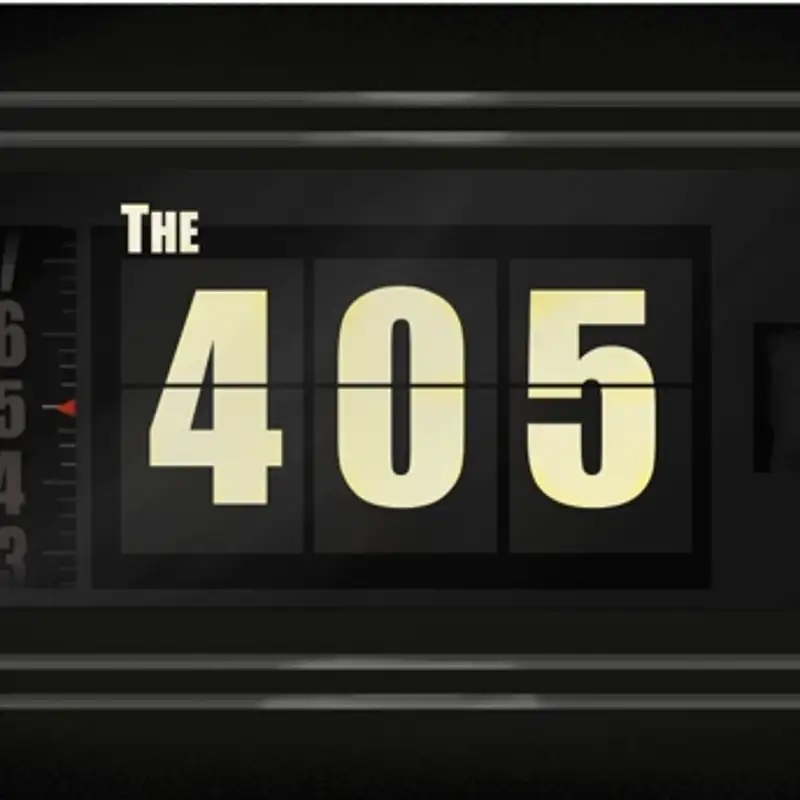
The 405 Aired Oct 20th, 2025
I wanna again welcome you to the 04:05 coffee break, guys. New week. Get you a cup of coffee, glass iced tea, bottle of water, hang on to your hat. It's windy out there. Let's see what's happening.
OK Solberg:Spring wheat, $5.19 a bushel. 550 pounds steer calf. I'm gonna give you a range. $4.40 a pound all the way up to $4.79. Good price.
OK Solberg:Great price. Butcher hog in Iowa, 64¢ a pound. And a lamb that's fat weighing a 100 pounds in Billings will fetch you $2 even a pound. But, guys, there's more, much more. 10/20/2025.
OK Solberg:It's our son Tony's birthday. Happy birthday, Tony. Tony was born in 1992. He's 33 years old today, and he's our youngest. Yikes.
OK Solberg:Parents know they're in trouble when their youngest son gets to be 33 years old. Enjoy your day, Tony. You and Cassie, eat a piece of cake for me. Okay. It's Monday, and you may or may not know what that means, but I'm gonna tell you.
OK Solberg:It's the second edition of drum roll, please. Jay and Joe's Motor Monday. Yes. The day we honor horsepower one Monday at a time. Well, last Monday, you will remember I mentioned Bill France, just like the country France.
OK Solberg:Bill France and junior Johnson. And I told you I'd continue their story next week, and that's today. So let's do that right now. Title of today's episode, bootlegger and the boss. How junior Johnson and Bill France senior drove NASCAR into the big time.
OK Solberg:Now it began with a handshake between a visionary and a rebel. And from that grip, American motorsports would never be the same. Bill France senior, a towering figure with a mechanic's grit and a promoter's flair, saw something in the smoky ragtag chaos of southern stock car racing in the nineteen forties. He saw order in the madness. He saw a spectacle in the dust.
OK Solberg:He saw NASCAR. But vision only takes you so far. You need legends. You need heroes and maybe a few outlaws. Enter Robert Glenn junior Johnson, a Wilkes County, North Carolina moonshiner turned speed demon.
OK Solberg:Johnson was as raw as a red clay he grew up on. By the time he roared into NASCAR's early years, the man could make a 1940 Ford coupe dance like it was light as a feather. To the fans, he was a floor folklore in the flesh. To the law, he was trouble on wheels. But but to Bill France senior, he was pure gold.
OK Solberg:France had founded NASCAR in 1948, building it from a dusty Daytona Beach dream into a national spectacle. Oh, yeah. He knew how to organize, how to promote, how to turn racing into a business. And he knew that to sell the sport, you needed men like junior Johnson. Drivers with an edge, speed with a story.
OK Solberg:And what a story Johnson gave him Despite serving eleven months in federal prison for moonshining in 1956, Johnson never lost his edge. He returned to the track with something to prove, and Fan loves loved him all the more. In 1960, he won the Daytona five hundred in a car that wasn't supposed to win. Driving a slower Chevrolet, it was in 1959, by the way, Johnson discovered the power of drafting, tucking in behind faster cars to cut wind resistance. It wasn't just clever, it was racecraft, and it changed NASCAR forever.
OK Solberg:France took that moment and ran with it. He turned the Daytona five hundred into the Super Bowl of stock car racing. Johnson's victory wasn't just a win. It was a headline and a big one at that. The bootlegger turned Daytona king was front page news.
OK Solberg:Oh, yes. France made sure of it. Behind the scenes, France ruled NASCAR with a firm hand, part father figure, part iron fisted commissioner. He battled tire wars, union threats, and rival racing series. But he knew the lifeblood of the sport came from its characters, and he protected them as fiercely as he protected the sport itself.
OK Solberg:Johnson would go on to win 50 races. Count them. 48, 49, 50 races as a driver before he retired in 1966. But his influence didn't stop there. As a team owner, he guided future legends like Darryl Waltrip and Carl Yarborough to championships.
OK Solberg:His garage became a factory of speed, and France's NASCAR grew right alongside it. Those two men, one the architect, the other the icon, needed each other more than they ever admitted. Without France, Johnson might have just stayed another moonshiner with a fast car. Without Johnson, France might have struggled to convince the world that NASCAR was more than just a southern novelty. Together, they built it brick by brick, brick, lap by lap.
OK Solberg:France gave the sport a foundation. Johnson gave it soul. Years later, when asked about Johnson's legacy, Bill France senior simply said, he was the greatest driver I ever saw, and he made a lot of people believe in what we were doing. Not bad for a bootlegger, not bad for a dreamer, and absolutely essential to each other. Thy end.
OK Solberg:Now a bible verse to wrap it all up. I have fought a good fight. I have finished my course. I have kept the faith. Second Timothy four seven.
OK Solberg:Tune in again next Monday. So until next time, as you go out there, remember now, don't be bitter.